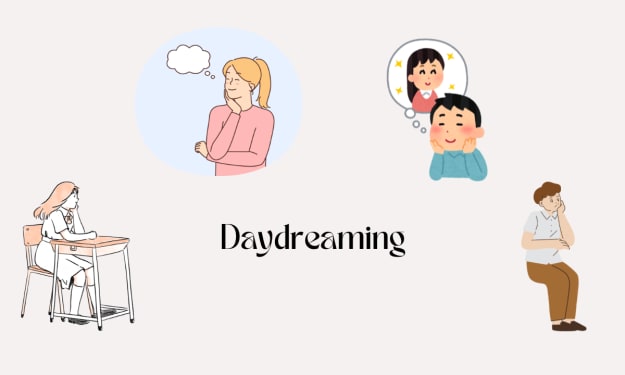10 Practical Steps to Take When Feeling Depressed
Empowering Yourself with Actionable Strategies for Managing Depression and Restoring Well-being

Title: "10 Practical Steps to Take When Feeling Depressed"
Introduction:
First, we need to understand the difference between sadness and depression. Depression and sadness are two distinct emotional states, although they can share some similarities. Understanding the differences between depression and sadness is important for recognizing and addressing mental health concerns effectively. Here are some key distinctions:
1. Duration and Intensity:
- Sadness is a normal emotional response to specific events or situations, such as the loss of a loved one, a breakup, or a disappointment. It is typically temporary and tends to fade over time as the individual processes and adapts to the situation.
- Depression, on the other hand, is a mental health condition characterized by persistent feelings of sadness, hopelessness, and a lack of interest or pleasure in activities. It can last for weeks, months, or even years, and its impact on daily functioning is more profound than temporary sadness.
2. Triggers:
- Sadness is often triggered by specific events or circumstances, such as a personal loss or a setback. It is a natural response to life's challenges and can be a healthy part of the grieving process.
- Depression may have no apparent trigger or may arise from a combination of genetic, biological, environmental, and psychological factors. It can occur even without a specific reason and can persist regardless of external circumstances.
3. Symptoms:
- Sadness is primarily characterized by feelings of sorrow, disappointment, or grief. It may be accompanied by tearfulness, a temporary loss of interest in activities, changes in appetite, and difficulty sleeping. While sadness can impact daily life, it does not typically lead to pervasive changes in mood, energy levels, or self-esteem.
- Depression involves a broader range of symptoms, including persistent feelings of sadness, hopelessness, and emptiness. Other common symptoms include changes in appetite and weight, sleep disturbances, low energy or fatigue, difficulty concentrating, feelings of guilt or worthlessness, and even thoughts of death or suicide. Depression can significantly impair various areas of life, such as work, relationships, and overall functioning.
4. Impact on Functioning:
- Sadness, although distressing, does not usually interfere significantly with a person's ability to carry out their daily activities or responsibilities. It is a normal emotional response that tends to diminish as time passes and healing occurs.
- Depression, on the other hand, can have a profound impact on a person's functioning. It can make even simple tasks feel overwhelming and drain energy levels. Depression may lead to difficulties in concentration, decision-making, and maintaining relationships. It can also affect physical health, appetite, sleep patterns, and overall quality of life.
5. Treatment and Support:
- Sadness often resolves naturally over time or with the support of loved ones and social networks. Engaging in self-care practices, seeking comfort from others, and allowing oneself to grieve can aid in the healing process.
- Depression typically requires professional intervention for effective treatment. Therapeutic approaches, such as psychotherapy (such as cognitive-behavioral therapy), medication, or a combination of both, are commonly used to manage depression. Building a strong support system and implementing self-care strategies are also important components of depression treatment.
It's important to note that the distinction between sadness and depression can sometimes be challenging, as sadness can be a symptom of depression. If you or someone you know is experiencing persistent sadness, loss of interest, or other depressive symptoms that significantly impact daily functioning, it is advisable to seek professional help to receive an accurate diagnosis and appropriate treatment.
Feeling depressed can be overwhelming and isolating, but it's essential to remember that there are practical steps you can take to regain a sense of control and start your journey toward healing. In this article, we will explore ten actionable strategies that can help you navigate through periods of depression and restore a sense of well-being in your life. By implementing these steps, you can empower yourself to take charge of your mental health and work toward finding the light at the end of the tunnel.
1. Recognize and Acknowledge Your Feelings:
- The first step in managing depression is to acknowledge and accept your feelings. Understand that it's okay to feel the way you do and that seeking help is a sign of strength, not weakness.
2. Reach Out for Support:
- Building a strong support system is crucial when dealing with depression. Reach out to trusted friends, family members, or support groups who can provide a listening ear and offer understanding.
3. Prioritize Self-Care:
- Engaging in self-care activities can have a profound impact on your well-being. Make time for activities that bring you joy and help you relax, such as practicing mindfulness, indulging in hobbies, or enjoying nature.
4. Establish a Healthy Routine:
- Creating structure in your daily life can provide stability and a sense of purpose. Establish a routine that includes regular sleep patterns, exercise, nutritious meals, and dedicated time for self-care activities.
5. Set Realistic Goals:
- Start small by setting achievable goals that give you a sense of accomplishment. Celebrate even the smallest victories, as they contribute to your overall well-being and build momentum for larger achievements.
6. Engage in Physical Activity:
- Exercise has been proven to boost mood and reduce symptoms of depression. Find physical activities you enjoy, such as walking, yoga, or dancing, and incorporate them into your routine.
7. Practice Mindfulness and Relaxation Techniques:
- Cultivating mindfulness and relaxation techniques can help reduce stress and promote emotional well-being. Explore techniques like deep breathing exercises, meditation, or guided imagery to find what works best for you.
8. Challenge Negative Thoughts:
- Negative thoughts often accompany depression. Practice identifying negative self-talk and challenging these thoughts with more positive and realistic perspectives.
9. Seek Professional Help:
- If your symptoms persist or worsen, don't hesitate to seek professional help. A qualified mental health professional can provide valuable guidance, support, and therapeutic interventions tailored to your needs.
10. Be Patient with Yourself:
- Recovery takes time, and healing from depression is a journey. Be patient with yourself and celebrate progress, no matter how small. Remember, every step forward is a step toward reclaiming your life.
Conclusion:
When feeling depressed, it's crucial to remember that you are not alone, and there are practical steps you can take to manage your mental health. By recognizing and acknowledging your feelings, seeking support, prioritizing self-care, establishing a routine, engaging in physical activity, practicing mindfulness, challenging negative thoughts, seeking professional help when needed, and being patient with yourself, you can take significant strides toward finding relief and restoring well-being. Remember, recovery is possible, and you have the power to create a brighter future for yourself.
About the Creator
Lomat Al Noor
My goal is to captivate readers and provide them with valuable insights and knowledge. I am dedicated to delivering content that informs, inspires, and entertains.
Enjoyed the story? Support the Creator.
Subscribe for free to receive all their stories in your feed. You could also pledge your support or give them a one-off tip, letting them know you appreciate their work.






Comments
There are no comments for this story
Be the first to respond and start the conversation.